Ustasha death camp victims commemorated
Victims of Ustasha's WWII Jasenovac concentration camp were commemorated on Sunday at Jasenovac memorial complex in Croatia.
Sunday, 12.05.2013.
15:23

ZAGREB Victims of Ustasha's WWII Jasenovac concentration camp were commemorated on Sunday at Jasenovac memorial complex in Croatia. The commemoration was held in memory of the last prisoners’ breakout on April 22, 1945. Ustasha death camp victims commemorated Croatian President Ivo Josipovic, Croatian Parliament Speaker Josip Leko, Labor Minister Mirando Mrsic, Prime Minister Zoran Milanovic's envoy and representatives of camp inmates attended the commemoration. Around 2,500 citizens gathered to pay their respects to the victims. Josipovic reiterated that it was an obligation to remember innocent victims and never allow the ideology of evil to become live again. “Jasenovac is a reminder of a crime in which numerous Croats took part,” the president said and added that the memory of the victims was an act of justice and that hatred must not be an excuse for new hatred. “Modern Croatia is a democratic and freedom-loving country whose being and the entire political and national identity were created on anti-fascism, against Ustasha and Nazism. We must never forget that,” he added. Josipovic stressed that innocent people had been killed, tortured and starved just because they were Serbs, Roma, Jews, Bosniaks or Croats that did not suit the Ustasha regime. Leko said that fight against fascism did not stop in democratic societies and that it was becoming increasingly important and that it was Croatia’s obligation ahead of the EU accession. “We must not forget suffering of Serbs, Jews, Roma and members of other nations,” he said and added that today’s generations not only respected the victims but were in their debt. According to Jasenovac memorial Council member Katica Sedmak, 83,301 people lost their lives in the camp, including 20,000 women and 20,101 children. Serbian Ambassador Stanimir Vukicevic and Consul to Vukovar Zivorad Simic attended the commemoration. The death camp was operated during WW2 by the Independent State of Croatia (NDH) pro-Nazi Ustasha regime, and saw imprisonment and executions of Serbs, Jews and Roma, as well as of the regime's ideological enemies. About 600 remaining prisoners tried to escape from the concentration camp on April 22, 1945. Only about one hundred of them survived. A view of Jasenovac memorial site (Beta, file) Beta Tanjug
Ustasha death camp victims commemorated
Croatian President Ivo Josipović, Croatian Parliament Speaker Josip Leko, Labor Minister Mirando Mrsić, Prime Minister Zoran Milanović's envoy and representatives of camp inmates attended the commemoration. Around 2,500 citizens gathered to pay their respects to the victims.Josipović reiterated that it was an obligation to remember innocent victims and never allow the ideology of evil to become live again.
“Jasenovac is a reminder of a crime in which numerous Croats took part,” the president said and added that the memory of the victims was an act of justice and that hatred must not be an excuse for new hatred.
“Modern Croatia is a democratic and freedom-loving country whose being and the entire political and national identity were created on anti-fascism, against Ustasha and Nazism. We must never forget that,” he added.
Josipović stressed that innocent people had been killed, tortured and starved just because they were Serbs, Roma, Jews, Bosniaks or Croats that did not suit the Ustasha regime.
Leko said that fight against fascism did not stop in democratic societies and that it was becoming increasingly important and that it was Croatia’s obligation ahead of the EU accession.
“We must not forget suffering of Serbs, Jews, Roma and members of other nations,” he said and added that today’s generations not only respected the victims but were in their debt.
According to Jasenovac memorial Council member Katica Sedmak, 83,301 people lost their lives in the camp, including 20,000 women and 20,101 children.
Serbian Ambassador Stanimir Vukićević and Consul to Vukovar Živorad Simić attended the commemoration.
The death camp was operated during WW2 by the Independent State of Croatia (NDH) pro-Nazi Ustasha regime, and saw imprisonment and executions of Serbs, Jews and Roma, as well as of the regime's ideological enemies.
About 600 remaining prisoners tried to escape from the concentration camp on April 22, 1945. Only about one hundred of them survived.










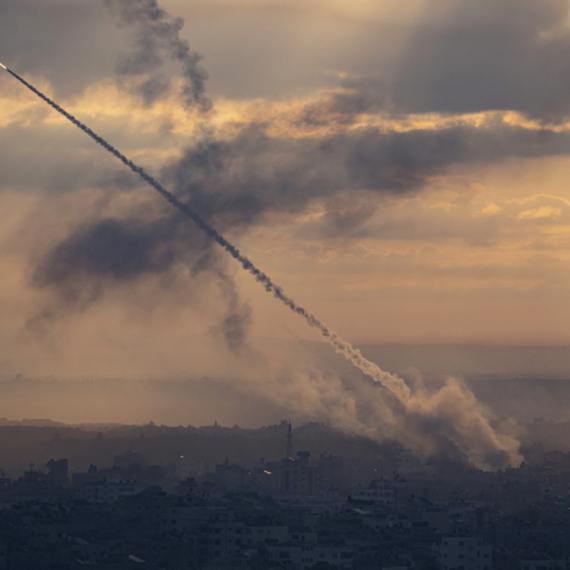

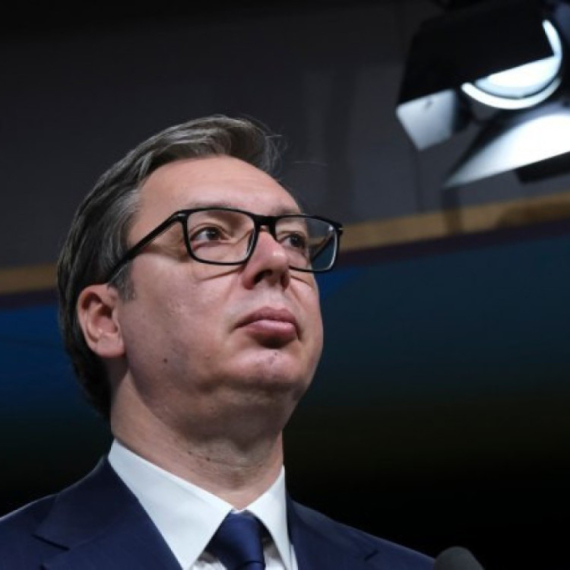
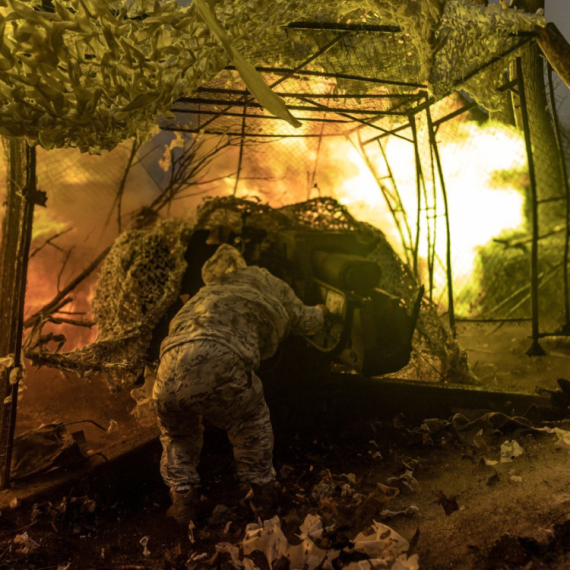


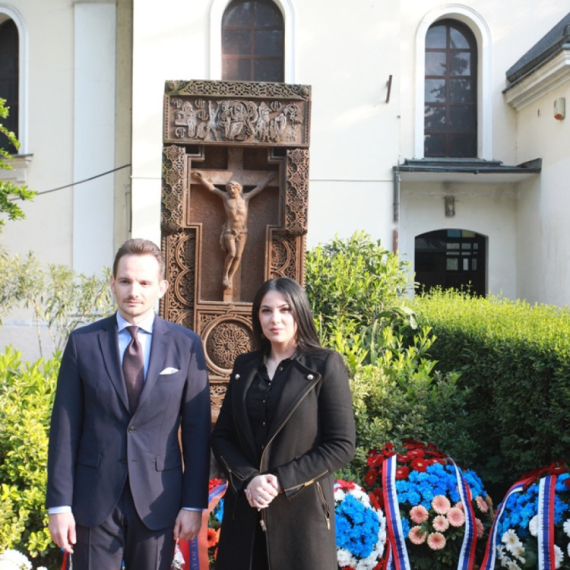

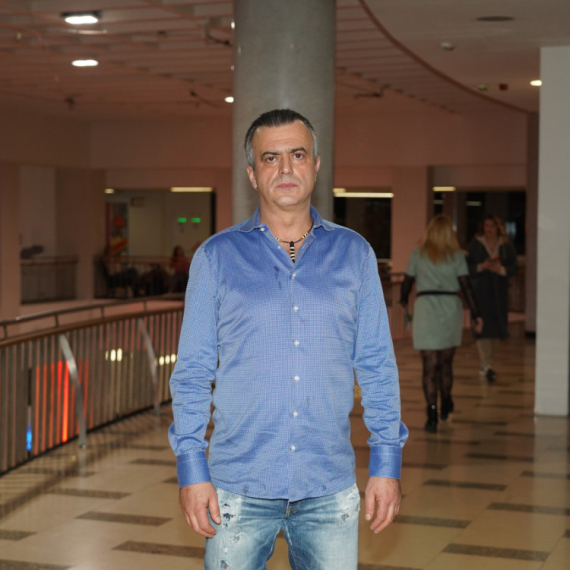


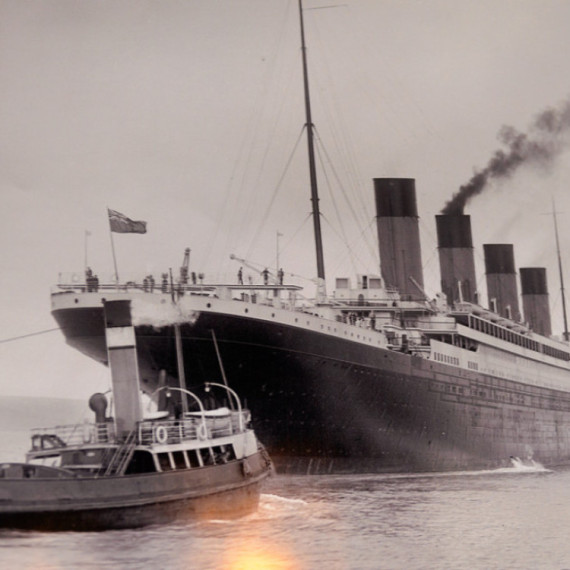




































Komentari 28
Pogledaj komentare